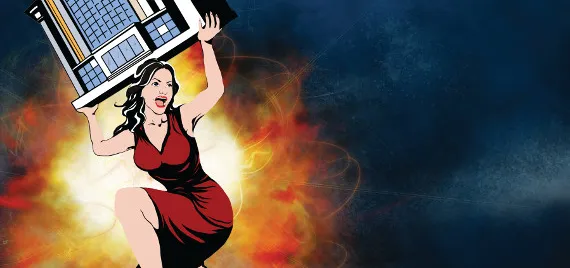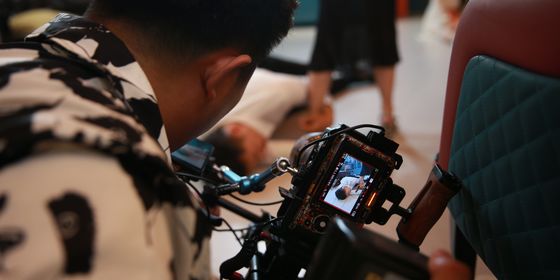Forget the Force or calling upon the elements, only one source can rule China
Luke Skywalker might call it “the Force”, Galactus might say it’s the “Power Cosmic”, Superman might say it’s, well, himself, but in Chinese the most powerful force is 洪荒之力 (hónghuāng zhī lì), literally “the power of prehistoric times” or “primordial power”. The Chinese word 洪荒 (hónghuāng) refers to the beginnings of the universe, an era believed to be chaotic, desolate, and boundless. According to some Chinese mythological accounts, the entire world was nearly destroyed in a massive flood in primordial times. Accordingly, “primordial power” is used to describe a kind of great, supernatural, apocalyptic force.
It’s not a new phrase, but it has been given new life by the TV show Hua Qiangu, or The Journey of Flower. In this show about mystical martial arts, a demonic force called “primordial power” possesses the female lead.
As one might imagine, the phrase has lost its somewhat destructive connotations over time. For example, one might convey “I tried my best” by saying, “我已经用了洪荒之力了。(Wǒ yǐjīng yòng le hónghuāng zhī lì le. I have already used my primordial power. )” The most well-known example occurred at the Rio Olympics, a year after The Journey of Flower was broadcast, when Chinese swimmer Fu Yuanhui was interviewed by China Central Television after her semifinal swim. She said, “I wasn’t reserving my energy for the final, I already used up my primordial power.” Fu’s usage thrust this phrase into the limelight.
These days, a student who stayed up all night studying but couldn’t finish an assignment might say, “我已经用了洪荒之力了,老师会原谅我的。(Wǒ yǐjīng yòng le hónghuāng zhī lì le, lǎoshī huì yuánliàng wǒ de. I have used up my primordial power, so my teacher will forgive me.)” A climber looking up at the mountaintop might sigh, “我已经用了洪荒之力了, 但是这座山真的太险峻了。(Wǒ yǐjīng yòng le hónghuāng zhī lì le, dànshì zhè zuò shān zhēn de tài xiǎnjùn le. I have used my primordial power, but this mountain is just too steep.)”
This phrase can also transform into a metaphor about impulses and feelings. Someone might, while on a diet, see a table full of delicous food and exclaim, “把它们都拿走!我要控制不住我体内的洪荒之力了!(Bǎ tāmen dōu ná zǒu! Wǒ yào kòngzhì bú zhù wǒ tǐnèi de hónghuāng zhī lì le! Take it all away! I can’t control the primordial power in my body!)”
These impulses aren’t limited to hunger, and they can even spill over into work. Someone who had a fight with their boss might say, “他完全就是个暴君,我没能控制住自己的洪荒之力,跟他大吵了一架。(Tā wánquán jiùshì ge bàojūn, wǒ méi néng kòngzhì zhù zìjǐ de hónghuāng zhī lì, gēn tā dà chǎole yī jià. He was such a tyrant that I couldn’t control my primordial power and had a big fight with him.)” On the flipside, when you fall in love at first sight, you might describe the feeling as, “我一看到她就控制不住我的洪荒之力了。(Wǒ yī kàndào tā jiù kòngzhì bù zhù wǒ de hónghuāng zhī lì le. The moment I saw her, I couldn’t control my primordial power.)”
So whether it’s a row with your boss, meeting the love of your life, or a trek up Kilimanjaro, whenever you feel that universal power bubbling in your gut, you’ll know it’s the 洪荒之力.












